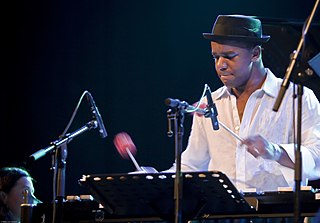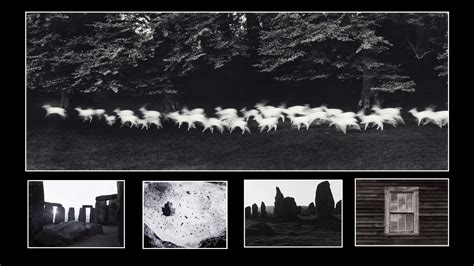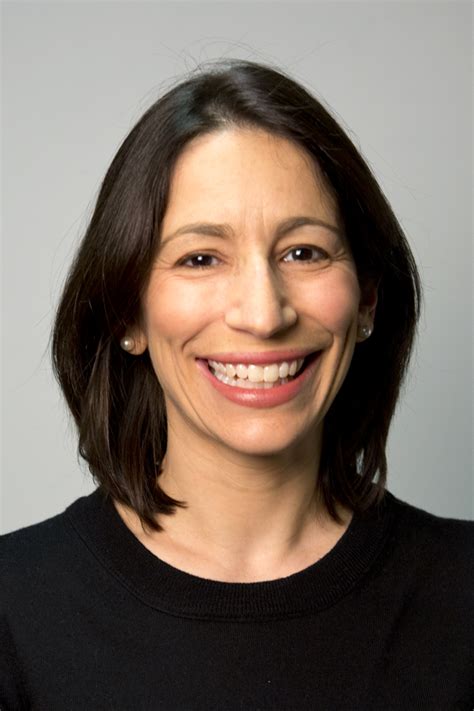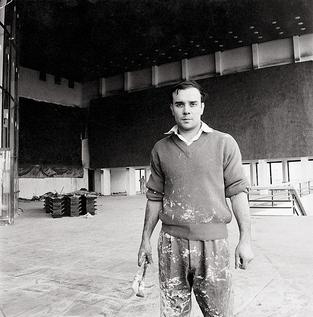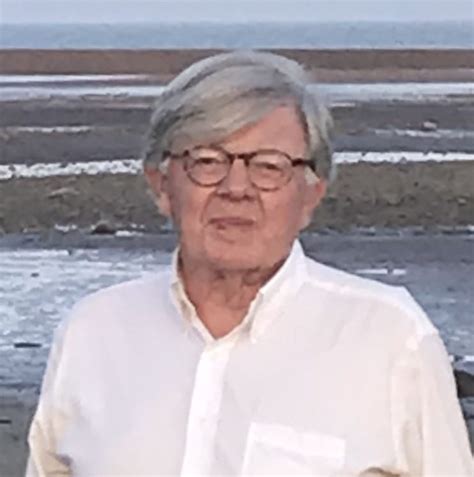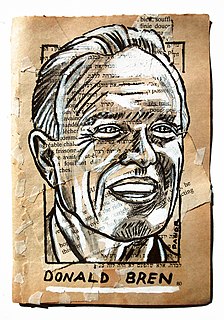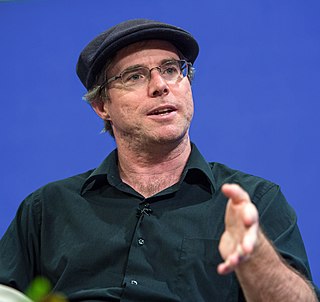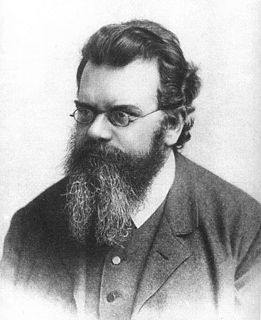Top 1200 Space Between Quotes & Sayings - Page 19
Explore popular Space Between quotes.
Last updated on April 20, 2025.
So much of what we said sounded crazy, yet none of it was false... as if two theoretical physicists stood on stage to say that when we travel near lightspeed, we get younger than nontravellers; that a mile of space next to the sun is differnt than a mile of space next to the earth because the sun-mile space is curved more than the the earth-mile. Silly ideas, worth the admission price in smiles, but they're true. Is high-energy physics interesting because it's true or because it's crazy?
The poet Marianne Moore famously wrote of 'real toads in imaginary gardens,' and the labyrinth offers us the possibility of being real creatures in symbolic space...In such spaces as the labyrinth we cross over [between real and imaginary spaces]; we are really travelling, even if the destination is only symbolic.
In my years of photography I have learned that many things can be sensed, seen, shaped, or resolved in a realm of quiet, well in advance of, or between, the actual clicking of shutters and the sloshing of films and papers in chemical solutions. I work to attain a state of heart, a gentle space offering inspirational substance that could purify one's vision. Photography, like music, must be born in the unmanifest world of the spirit.
In my mind, public space travel will precede efforts toward exploration -- be it returning to the moon, going to Mars, visiting asteroids, or whatever seems appropriate. We've got millions and millions of people who want to go into space, who are willing to pay. When you figure in the payload potential of customers, everything changes.
What kind of choice is it, really, when motherhood forces you into a delicate balancing act -- not just between work and family, as the equation is typically phrased, but between your premotherhood and postmotherhood identities? What kind of choice is it when you have to choose between becoming a mother and remaining yourself?
From that first little touch, the whole world had shifted. Where before there was just one thing I could not live without, now there were two. There was no division – my love was not split between them now; it wasn’t like that. It was more like my heart had grown, swollen up to twice its size in that moment. All that extra space, already filled. The increase was almost dizzying.
When man sends colonies into space, he will be able to mount moveable, sun-reflecting mirrors to simulate rhythms of day and night and even the terrestial seasons...But he doubtless will follow the longstanding American habit of thinking that outer space should, as much as possible, resemble Southern California.
The International Space Station is a phenomenal laboratory, an unparalleled test bed for new invention and discovery. Yet I often thought, while silently gazing out the window at Earth, that the actual legacy of humanity's attempts to step into space will be a better understanding of our current planet and how to take care of it.
In fact, the Outer Space Treaty of 1967 bans militarization. Potential adversaries of the US, and even its allies, are so far behind that these countries are very interested in maintaining the treaty. Europe and the rest of the world want a strong reaffirmation of the Treaty and the US is unilaterally trying to derail it. Termination of the treaty would mean that the US could develop satellite weapons, put offensive weapons in space. It would probably mean using nuclear power in space. All of this leads to some very dangerous scenarios, including destruction of the species.
The experience of being in between-between the time we leave home and arrive? at our destination; between the time we leave adolescence and arrive at adulthood; between the time we leave doubt and arrive at faith. It is like the time when a trapeze artist lets go the bars and hangs in midair, ready to catch another support: it is a time of danger, of expectation, of uncertainty, of excitement, or extraordinary aliveness.
It is false to speak of realization. What is there to realize? The real is as it is always. We are not creating anything new or achieving something which we did not have before. The illustration given in books is this. We dig a well and create a huge pit. The space in the pit or well has not been created by us. We have just removed the earth which was filling the space there. The space was there then and is also there now. Similarly we have simply to throw out all the age-long sanskaras [innate tendencies] which are inside us. When all of them have been given up, the Self will shine alone.
The most ordinary things are to philosophy a source of insoluble puzzles. With infinite ingenuity it constructs a concept of space or time and then finds it absolutely impossible that there be objects in this space or that processes occur during this time . . . the source of this kind of logic lies in excessive confidence in the so-called laws of thought.
We have all kinds of limitations as human beings. I mean we can't see the whole electromagnetic spectrum, we can't see the very small, we can't see the very far. So we compensate for these short comings with technological scaffoldings. The microscope allows us to extend our vision into the microsphere. The telescope allows us to extend our vision into the macrosphere, the Hubble Space Telescope extends our optic nerve into space, and it allows us to mainline space and time through our optic nerve.
In the space between stimulus (what happens) and how we respond, lies our freedom to choose. Ultimately, this power to choose is what defines us as human beings. We may have limited choices but we can always choose. We can choose our thoughts, emotions, moods, our words, our actions; we can choose our values and live by principles. It is the choice of acting or being acted upon.
In 1980, during my sophomore year at MIT, I realized that the school didn't have a student space organization. I made posters for a group I called Students for the Exploration and Development of Space and put them up all over campus. Thirty-five people showed up. It was the first thing I ever organized, and it took off!
I emphasize the distinction between brackets and no brackets because it will affect your reading experience, if you will allow it. Brackets are exciting. Even though you are approaching Sappho in translation, that is no reason you should miss the drama of trying to read a papyrus torn in half or riddled with holes or smaller than a postage stamp--brackets imply a free space of imaginal adventure.
And I do pay a lot of attention to how things feel underneath my feet. It's a way of transporting yourself somewhere that you're trying to write about - closing your eyes and imagining what it feels like to literally be in that space. Maybe because of this weird aura thing I find it a bit easier to put my body in an imaginary space.
To most people in the U.K., indeed throughout Western Europe, space exploration is primarily perceived as 'what NASA does'. This perception is - in many respects - a valid one. Superpower rivalry during the Cold War ramped up U.S. and Soviet space efforts to a scale that Western Europe had no motive to match.
live in the space between chaos and shape. I walk the line that continually threatens to lose its tautness under me, dropping me into the dark pit where there is no meaning. At other times the line is so wired that it lights up the soles of my feet, gradually my whole body, until I am my own beacon, and I see then the beauty of newly created worlds, a form that is not random. A new beginning.
I am sitting here 93 million miles from the sun on a rounded rock which is spinning at the rate of 1000 miles an hour... and my head pointing down into space with nothing between me and infinity but something called gravity which I can't even understand, and which you can't even buy any place so as to have some stored away for a gravityless day.
If you sort of see yourself writing into a space that you don't always recognize, you sometimes learn things that you knew, but weren't entirely aware of. It's very liberating for a writer to go into a space where she or he has not gone before, because, instead of being a tourist, you're like an explorer now, and you're sort of lost in this new idea.
The most violent revolutions in an individuals beliefs leave most of his old order standing. Time and space, cause and effect, nature and history, and ones own biography remain untouched. New truth is always a go-between, a smoother-over of transitions. It marries old opinion to new fact so as ever to show a minimum of jolt, a maximum of continuity.
I'm very interested in the distance and the space between those two poles: very concrete, song-based stuff on the one hand and very improvisational, abstract stuff on the other. I don't see any reason music should exclude one or the other, and I think the pairing of them together makes for very interesting music in a lot of ways.
Not so many years ago there was no simpler or more intelligible notion than that of going on a journey. Travel -movement through space -provided the universal metaphor for change. One of the subtle confusions -perhaps one of the secret terrors -of modern life is that we have lost this refuge. No longer do we move through space as we once did.

